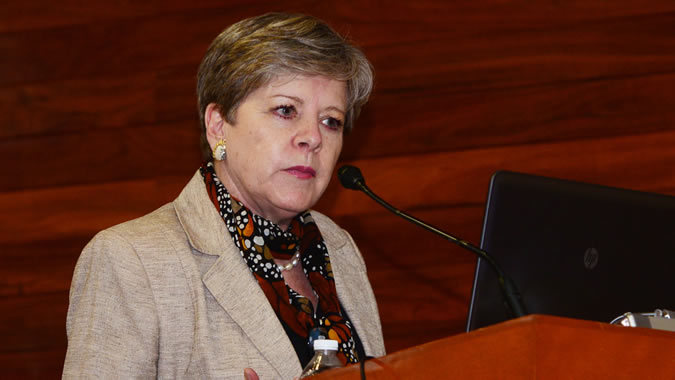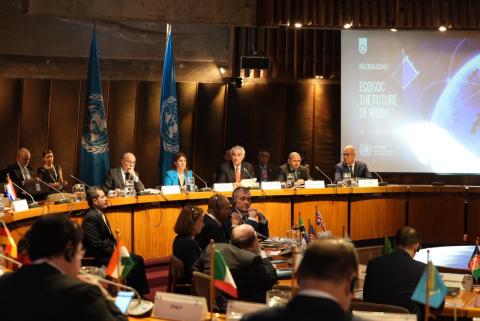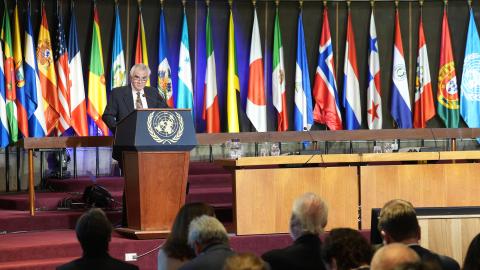News
The structural gaps that persist in the region have hampered dynamic and sustained economic growth and greater social development in Latin America and the Caribbean, Alicia Bárcena, Executive Secretary of the Economic Commission for Latin America and the Caribbean (ECLAC), said during a keynote lecture in Mexico City on Thursday, 12 November.
The senior United Nations official gave a lecture at the National Autonomous University of Mexico (UNAM) entitled “Circumstances and Structures. Decolonizing the development agenda in Latin America and the Caribbean.” In it, she presented the foundations of structuralist thought and the reasons behind the region’s mediocre long-term growth compared with other developing regions in the world (around 2% between 1962 and 2014).
“Structural gaps limit the possibilities for moving towards more inclusive economies and societies,” Alicia Bárcena stated. “Economic measures are not enough to close these gaps. Social structures must be tackled because they largely explain the economic behavior of different actors in our societies.”
ECLAC’s Executive Secretary called for “decolonizing the development agenda” and articulating the relationship between circumstances and structures, based on four pillars: countercyclical policies that make managing aggregate demand compatible with the need to boost medium- and long-term growth; an industrial policy to foster progressive structural change; the promotion of environmental innovation measures and moving towards low-carbon growth paths (the environmental Big Push); and an integrated social policy.
“Social policy should be integrated with macro and production measures. In short, social matters do not play out in social spheres alone,” Bárcena emphasized.
During her visit to Mexico, ECLAC’s Executive Secretary also gave a presentation before statistics experts and geographers from several countries of the region at the headquarters of the National Institute of Statistics and Geography (INEGI).
Bárcena presented the main proposals contained in the 2030 Agenda for Sustainable Development, which was approved recently by the United Nations, and she underscored the importance of statistical data and geographical information for better comprehending the region’s economic and structural challenges.
She indicated that Latin America and the Caribbean faces a more restrictive external scenario, with lower economic growth and decelerated trade. In light of these challenges, she recalled ECLAC’s proposed approach: “equality is the goal, structural change the path, and politics the instrument.”
The official emphasized that fighting inequality is essential for eradicating poverty. The main components of inequality are related to the gender, race and ethnic group to which people belong, their life cycle (infancy, youth and older people), and their territorial situation (urban or rural).
Bárcena specified that understanding matters of territory allows officials to design broader measures of progress and will enable them to go from measuring economic production to measuring people’s well-being. “The relationship between environmental and socioeconomic figures is essential for public policy,” she stressed.
Finally, ECLAC’s Executive Secretary insisted on the importance of compacts as instruments that permit the implementation of policies and institutional reforms with a strategic perspective. She indicated that a social pact is necessary today as relations between the State, the market and society change, while a territorial pact helps strengthen local governments and foster adequate citizen participation in public decision-making.



